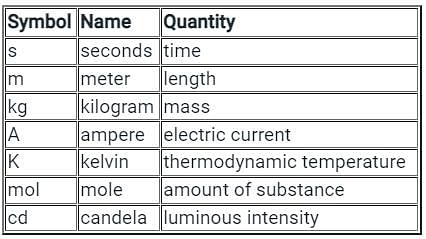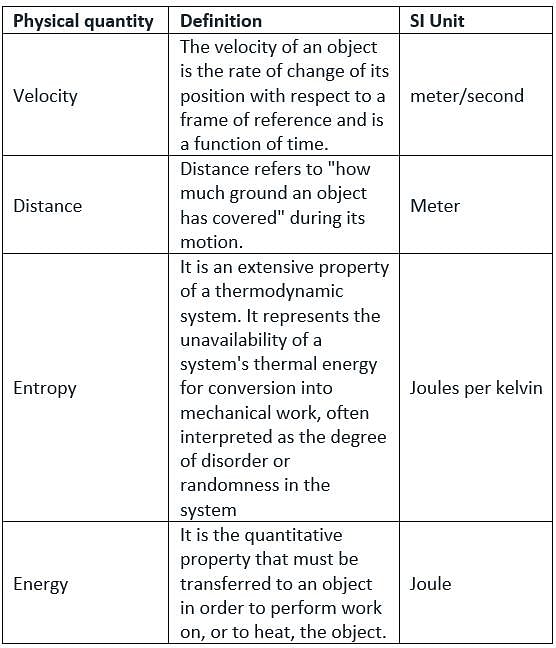Grade 12 Exam > Grade 12 Tests > Test: Physical Quantities - Grade 12 MCQ
Test: Physical Quantities - Grade 12 MCQ
Test Description
10 Questions MCQ Test - Test: Physical Quantities
Test: Physical Quantities for Grade 12 2024 is part of Grade 12 preparation. The Test: Physical Quantities questions and answers have been prepared
according to the Grade 12 exam syllabus.The Test: Physical Quantities MCQs are made for Grade 12 2024 Exam.
Find important definitions, questions, notes, meanings, examples, exercises, MCQs and online tests for Test: Physical Quantities below.
Solutions of Test: Physical Quantities questions in English are available as part of our course for Grade 12 & Test: Physical Quantities solutions in
Hindi for Grade 12 course.
Download more important topics, notes, lectures and mock test series for Grade 12 Exam by signing up for free. Attempt Test: Physical Quantities | 10 questions in 10 minutes | Mock test for Grade 12 preparation | Free important questions MCQ to study for Grade 12 Exam | Download free PDF with solutions
Detailed Solution for Test: Physical Quantities - Question 1
Test: Physical Quantities - Question 2
The escape velocity on the Earth's surface is about ______.
Detailed Solution for Test: Physical Quantities - Question 2
| 1 Crore+ students have signed up on EduRev. Have you? Download the App |
Detailed Solution for Test: Physical Quantities - Question 3
Test: Physical Quantities - Question 4
Which of the following is an example of vector quantity?
Detailed Solution for Test: Physical Quantities - Question 4
Test: Physical Quantities - Question 5
A ____________charge is defined as the amount of electric charge transported by one-ampere current in one second from one point to another.
Detailed Solution for Test: Physical Quantities - Question 5
Detailed Solution for Test: Physical Quantities - Question 6
Detailed Solution for Test: Physical Quantities - Question 7
Test: Physical Quantities - Question 8
With what do you divide thrust in a liquid to obtain the value of pressure?
Detailed Solution for Test: Physical Quantities - Question 8
Detailed Solution for Test: Physical Quantities - Question 9
Test: Physical Quantities - Question 10
Two resistors, each of 20 ohms, are connected in parallel and this combination is connected across a 40 V supply voltage.
Find the resistance in the circuit.
Detailed Solution for Test: Physical Quantities - Question 10
Information about Test: Physical Quantities Page
In this test you can find the Exam questions for Test: Physical Quantities solved & explained in the simplest way possible.
Besides giving Questions and answers for Test: Physical Quantities , EduRev gives you an ample number of Online tests for practice
Download as PDF



















